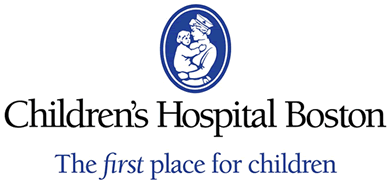Adenosine 2A Agonist Lexiscan in Children and Adults With Sickle Cell Disease
| Status: | Completed |
|---|---|
| Conditions: | Anemia |
| Therapuetic Areas: | Hematology |
| Healthy: | No |
| Age Range: | 10 - 70 |
| Updated: | 3/30/2013 |
| Start Date: | April 2010 |
| End Date: | December 2013 |
| Contact: | David Nathan, MD |
| Email: | david_nathan@dfci.harvard.edu |
| Phone: | 617-632-2155 |
Safety of Adenosine 2A Agonist Lexiscan in Children and Adults With Sickle Cell Disease
Sickle cell disease (SCD) is an inherited blood disorder that causes the red blood cells to
change their shape from a round shape to a half-moon/crescent or sickled shape. People who
have SCD have a different type of protein that carries oxygen in their blood (hemoglobin)
then people without SCD. This different type of hemoglobin makes the red blood cells change
into a crescent shape under certain conditions. Sickle-shaped cells are a problem because
they often get stuck in blood vessels blocking the flow of blood, and cause inflammation and
injury to the important areas in the body. Lexiscan is drug that may prevent this
inflammation and injury caused by the sickle shaped cells. This drug is approved by the FDA
to be used as a fast infusion during a heart stress test in people who are unable to
exercise enough to put stress on their heart by making it beat faster. Lexiscan has never
been studied in patients with SCD and has never been given as a long infusion.
- In this research study we are looking for the highest dose of Lexiscan that can be
given safely to patients with SCD. There are 4 stages to this study. Each stage will
look for the highest dose that can be given safely in the following situations: Stage
1: Lexiscan will be given through a 12 hours infusion to adults with SCD who are not
having a pain crisis. Stage 2: Lexiscan will be given through a 24 hour infusion to
adults with SCD who are not having a pain crisis. Stage 2b: Lexiscan will be given
through a 48 hour infusion to adults with SCD who are not having a pain crisis. Stage
3: Lexiscan will be given through a 24 hour infusion to adults with SCD who are having
a pain crisis. Stage 4: Lexiscan will be given through a 24 hour infusion to children
with SCD who are having a pain crisis. Stages 1-3 are now complete and closed to
accrual. The study is now open to children ages 10-17 with SCD pain crisis (stage 4)
only.
- When participants sign the consent form, they will be told what stage they will join.
- Participants in Stages 1, 2, and 2b will be given an infusion of the study drug at the
time when they do not have a pain crisis. The infusion for Stage 1 participants will
be 12 hours long, followed by a 6-hour observation period. The infusion for Stage 2
will be 24 hours long, followed by a 6-hour observation period. The infusion for Stage
2b will be 48 hours long, followed by a 6-hour observation period.
- Participants in Stages 3 and 4 will be given one infusion of the study drug when they
are admitted to the hospital for a pain crisis. The infusion will be 24 hours long,
followed by a 6-hour observation period. During the infusion, they will receive
standard treatment for their pain crisis.
- Before the infusion the following procedures will be performed: Pulmonary function test
(optional, Stage 1 only), blood test and vital signs.
- During the infusion the following procedures will be performed: heart rate and amount
of oxygen in the blood will be monitored continuously, blood tests and blood pressure.
- During the observation period immediately following the infusion the following
procedures will be performed: heart rate and amount of oxygen in the blood will be
monitored continuously, blood tests, blood pressure and Pulmonary Function test
(optional, Stage 1 only).
Inclusion Criteria Stage I/II/IIb: (COMPLETE AND CLOSED TO ACCRUAL)
- Participants must have sickle cell anemia confirmed by hemoglobin analysis
- Participants must report that their pain is at baseline. Additionally, they cannot
report an increase in dose or frequency of opioid use in the last 2 weeks prior to
drug administration
- Age 21-70 years
- Participants must have the laboratory indices as outlined in the protocol
- Participants must have reliable IV access as determined by the investigator
- Women of child-bearing potential and men must agree to use adequate contraception
prior to study entry and for the duration of the study.
Inclusion Criteria Stage III: (COMPLETE AND CLOSED TO ACCRUAL)
- Participants must have sickle cell anemia confirmed by hemoglobin analysis
- Participant is admitted to the hospital for a pain episode
- Age 21-70 years
- Participants must have the laboratory indices as outlined in the protocol
- Participants must have reliable IV access as determined by the investigator
- Women of child-bearing potential and men must agree to use adequate contraception
prior to study entry and for the duration of study participation
Inclusion Criteria Stage IV: (open, still accruing volunteers)
- Participants must have sickle cell disease confirmed by hemoglobin analysis
- Participant is admitted to the hospital for a pain episode
- Ages of assent (10 to 17 years at DFCI, but different depending on institution)
- Participants must have the laboratory indices as outlined in the protocol
- Participants must have reliable IV access as determined by the investigator
- Participants and parents must have the ability to understand and the willingness to
sign a written informed consent and assent document
- Women of child-bearing potential and men must agree to use adequate contraception
prior to study entry and for the duration of study participation
Exclusion Criteria Stage I/II/IIb: (COMPLETE AND CLOSED TO ACCRUAL)
- Participants with a current physician diagnosis of asthma (within last 12 months),
require continuous supplemental oxygen, or predicted or current use of some asthma
medications.
- Participants with second- or third-degree AV block or sinus node dysfunction
- Have a history of bleeding diathesis
- Have a history of clinically overt stroke
- Have a history of severe hypertension not adequately controlled with
anti-hypertensive medications
- Participants who are receiving chronic anti-coagulation or anti-platelet therapy
- Participants with a history of metastatic cancer
- Participants who have had a hospitalization or emergency room visit for any reason in
the past 2 weeks
- Participants may not be receiving any other study agents or have received a study
agent in the past 30 days
- Uncontrolled intercurrent illness
- Pregnant or breastfeeding women
- Participants with HIV
- Participants who have previously enrolled and received the investigational agent as
part of this study
- Participants who are taking medications that may interact with the investigational
agent
Exclusion Criteria Stage III: (COMPLETE AND CLOSED TO ACCRUAL)
- Participants with a current physician diagnosis of asthma (within last 12 months),
require continuous supplemental oxygen, or predicted or current use of some asthma
medications.
- Participants with second- or third-degree AV block or sinus node dysfunction
- Have a history of bleeding diathesis
- Have a history of clinically overt stroke
- Have a history of severe hypertension not adequately controlled with
anti-hypertensive medications
- Participants who are receiving chronic anti-coagulation or anti-platelet therapy
- Participants with a history of metastatic cancer
- Participants may not be receiving any other study agents or have received a study
agent in the past 30 days
Exclusion Criteria Stage IV: (open, still accruing volunteers)
- Participants with a current physician diagnosis of asthma (within last 12 months),
require continuous supplemental oxygen, or predicted or current use of some asthma
medications.
- Participants with second- or third-degree AV block or sinus node dysfunction
- Have a history of bleeding diathesis
- Have a history of clinically overt stroke
- Have a history of hypertension not adequately controlled with anti-hypertensive
medications
- Participants who are receiving chronic anti-coagulation or anti-platelet therapy
- Participants with a history of metastatic cancer
- Participants may not be receiving any other study agents or have received a study
agent in the past 30 days
- Participants with HIV
- Participants who have previously enrolled and received the investigational agent as
part of this study
- Participants who are taking medications that may interact with the investigational
agent
We found this trial at
7
sites
Children's Hospital - Boston Boston Children's Hospital is a 395-bed comprehensive center for pediatric health...
Click here to add this to my saved trials
Johns Hopkins University The Johns Hopkins University opened in 1876, with the inauguration of its...
Click here to add this to my saved trials
Brigham and Women's Hosp Boston’s Brigham and Women’s Hospital (BWH) is an international leader in...
Click here to add this to my saved trials
Washington University Washington University creates an environment to encourage and support an ethos of wide-ranging...
Click here to add this to my saved trials
Dana-Farber Cancer Institute Since it’s founding in 1947, Dana-Farber has been committed to providing adults...
Click here to add this to my saved trials
Click here to add this to my saved trials
Click here to add this to my saved trials




